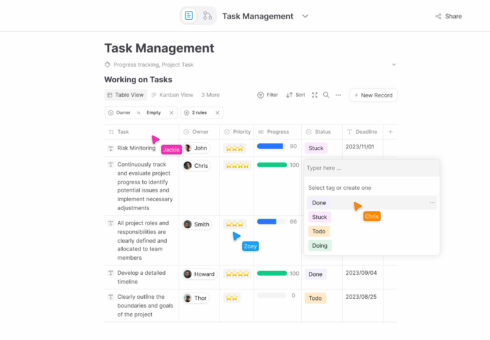
This week’s highlighted open-source project is AFFiNE, which is a knowledge base intended as an alternative to tools like Notion, Miro, and Airtable.
“There can be more than Notion and Miro. AFFiNE(pronounced [ə‘fain]) is a next-gen knowledge base that brings planning, sorting and creating all together. Privacy first, open-source, customizable and ready to use,” the project’s GitHub page states.
AFFiNE provides a single tool for a “second brain,” a digital extension of one’s mind where knowledge and information is stored somewhere where it can be easily retrieved.
It allows for writing, drawing, and planning, and also helps to reduce context switching between different apps for storing information.
“Many editor apps claim to be a canvas for productivity, but AFFiNE is one of the very few which allows you to put any building block on an edgeless canvas — rich text, sticky notes, any embedded web pages, multi-view databases, linked pages, shapes and even slides. We have it all,” the maintainers wrote on the GitHub page.
The tool also incorporates AI-powered capabilities that can help with a number of tasks, such as turning an outline into a presentation, summarizing an article, or drawing and coding a prototype for an app from a single prompt.
Data is stored locally, but it also offers real-time sync in order to promote team collaboration.
According to the maintainers, some of the tools it drew inspiration from include Quip and Notion for the content block concept, Trello for Kanban, Airtable and Miro for no-code datasheets, Miro and Whimsical for their edgeless visual whiteboard, and finally Remote and Capacities for their object-based tag system.
“There is a large overlap of their atomic “building blocks” between these apps. They are not open source, nor do they have a plugin system like Vscode for contributors to customize. We want to have something that contains all the features we love and also goes one step even further,” the maintainers said.
It currently has 33.7K stars on GitHub and almost 150 developers contributing to the project. It’s used by companies such as Amazon, IBM, Google, Meta, and Microsoft.








